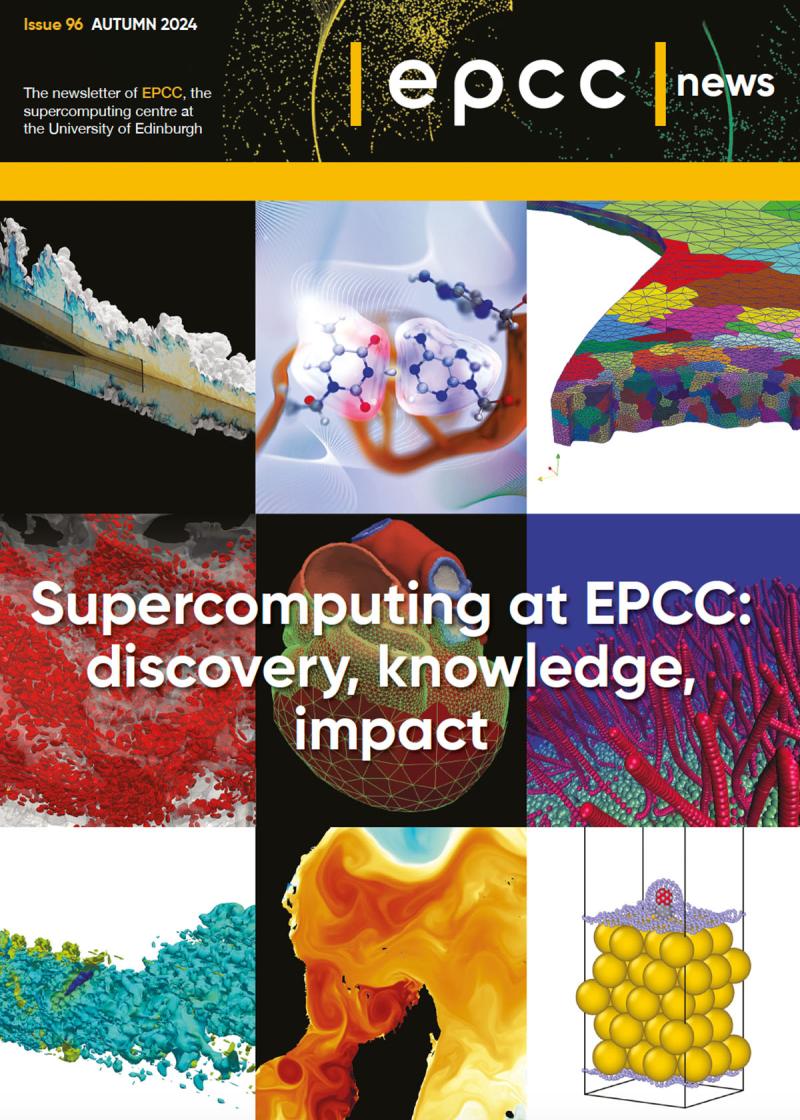EPCC News 96
October 2024
Supercomputing at EPCC: discovery, knowledge, impact
From our Director
We had hoped to focus this edition of EPCC News on the start of the preparations at EPCC and the ACF for the UK Exascale service. As I write this introduction in early September 2024, the project has been “shelved” by the UK Government while a review and development of an “AI Opportunities Action Plan” led by Matt Clifford CBE is developed. One of the challenges of paper documents is that they can’t be updated as events move forward. But they also provide a snapshot in time which accurately records what was happening at that time. Events may have moved on considerably by the time you read this.
The case for investment in an Exascale capability for the UK remains compelling – as does the case for much greater AI capability in all its forms. While AI has captured everyone’s imagination over the past 18 months, it doesn’t replace the need for national supercomputers that can do the largest calculations – calculations that are much larger than the training of current AI models require. AI is already supporting many areas of numerical computing – helping to get answers more quickly and more accurately. But rarely is it replacing the need for simulations based on our scientific knowledge entirely – in its current form it cannot do that.
This summer’s announcements have not damped EPCC’s appetite for preparations for the Exascale service. In this edition of EPCC News you will find many examples of how we’re preparing for large scale GPU-accelerated computing. Hopefully by the Spring edition I will have better news to report. Despite the current setback, I hope you enjoy this edition. I remain optimistic that the UK’s next national supercomputer will provide an Exascale capability for researchers from across academia and industry.
Professor Mark Parsons
EPCC Director

